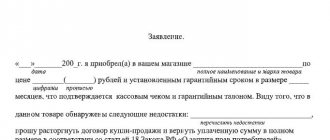Grounds for detention
Detention of a suspect is a measure of procedural coercion applied by the body of inquiry, inquiry officer or investigator from the moment of actual detention of a person on suspicion of committing a crime (Clause 11, Article 5 of the Code of Criminal Procedure).
The essence of detention is the short-term holding of a person in custody without the prior permission of the head of the investigative department, prosecutor or court.
Article 91 of the Code of Criminal Procedure of the Russian Federation provides grounds for detaining a suspect.
Article 112 of the Criminal Code of the Russian Federation – harm to health of moderate severity, long-term health disorder, significant permanent loss of general ability to work
The body of inquiry, the inquiry officer, the investigator has the right to detain a person on suspicion of committing a crime for which a sentence of imprisonment may be imposed in the following situations:
- When a citizen is caught committing a crime or immediately after it has been committed.
- When victims or eyewitnesses point to a specific citizen as the one who committed the crime.
- When obvious traces of a crime are found on this person or his clothing, on him or in his home.
If one of the grounds is present, the citizen may be detained.
Detention for 72 hours (3 days)
Police officers cannot detain a citizen for longer than two days. This can only be done at the discretion of the court hearing the criminal case against the person. The procedure for detention for 72 hours is determined by paragraph 3 of part 6 of article 108 of the Code of Criminal Procedure of the Russian Federation.
Grounds for detention for three days
The basis for detaining a suspect for three days is a court order. Such a decision may be made when one of the parties, when considering the issue of placing a person in custody, petitioned to postpone the court hearing to present additional evidence.
In fact, the detention is extended for another 72 hours and only if the court considers it legal and justified. It indicates the date and time the detention ends.
Note!
The petition can be filed no less than 8 hours before the end of the first period of detention - this is the maximum period required for the court to bring the suspect to the courtroom, consider and make a decision on the petition.
The procedure for detention according to the Code of Criminal Procedure of the Russian Federation
In accordance with Article 92 of the Code of Criminal Procedure of the Russian Federation, the procedure for detaining citizens is as follows:
- The citizen is delivered to the body of inquiry or to the investigator within 3 hours from the moment the crime was committed.
- There they draw up a protocol in which it is noted that the rights provided for by Article 46 of the Code of Criminal Procedure of the Russian Federation (Part 1 of Article 92 of the Code of Criminal Procedure of the Russian Federation) have been explained to the suspect.
- If the defender of a suspected citizen participates in criminal proceedings from the moment of actual detention, then his participation in drawing up a protocol of detention is mandatory (Part 1.1 of Article 92 of the Code of Criminal Procedure of the Russian Federation).
- The protocol indicates the date and time of drawing up the protocol, the date, time, place, grounds and motives for the detention of the suspect, the results of his personal search and other circumstances of his detention (Part 2 of Article 92 of the Code of Criminal Procedure of the Russian Federation).
- The arrest report is signed by the person who compiled it and the suspect.
- Then the body of inquiry, the inquiry officer or the investigator informs the prosecutor in writing about the arrest. The time for filing a report is 12 hours from the moment of detention of the suspect (Part 3 of Article 92 of the Code of Criminal Procedure of the Russian Federation).
Please note that the suspect must be interrogated within 24 hours from the moment of his actual arrest and in accordance with the general interrogation rules of Article 189-190 of the Code of Criminal Procedure of the Russian Federation.
Before the start of the interrogation, the suspect, at his request, is provided with a private and confidential meeting with a defense lawyer. The duration of the date can be 2 hours, no more and no less. The inquiry officer or investigator can limit the time for talking with a lawyer or defense attorney.
Also, during detention, the suspect may be subjected to a personal search in the manner prescribed by Article 184 and Article 93 of the Code of Criminal Procedure of the Russian Federation.
WHAT TO DO IF DETAINED
| For print |
If you are detained by the police
Handling and checking documents
- If you are approached a police officer:
- he must introduce himself, stating his position, rank and surname;
- upon your request, present your official identification;
— state the reason and purpose of the appeal;
— explain the reason and grounds for the restriction of your rights and freedoms.
Article 5. Observance and respect for human and civil rights and freedoms
1. The police carry out their activities on the basis of observance and respect for the rights and freedoms of man and citizen.
2. Police activities that restrict the rights and freedoms of citizens shall be immediately terminated if a legitimate goal has been achieved or it has become clear that this goal cannot or should not be achieved by limiting the rights and freedoms of citizens.
3. A police officer is prohibited from resorting to torture, violence, or other cruel or degrading treatment. A police officer is obliged to suppress actions that deliberately cause pain, physical or mental suffering to a citizen.
4. When contacting a citizen, a police officer is obliged to:
1) state your position, rank, surname, present your official identification at the request of the citizen, and then state the reason and purpose of the appeal;
2) if measures are applied to a citizen that restrict his rights and freedoms, explain to him the reason and grounds for the application of such measures, as well as the rights and obligations of the citizen arising in connection with this.
5. A police officer, if a citizen approaches him, is obliged to state his position, rank, surname, listen carefully to him, take appropriate measures within the limits of his powers, or explain whose competence it is to resolve the issue raised.
6. Information about the private life of a citizen obtained as a result of police activities cannot be provided to anyone without the voluntary consent of the citizen, except in cases provided for by federal law.
7. The police are obliged to provide every citizen with the opportunity to become familiar with documents and materials that directly affect his rights and freedoms, unless otherwise provided by federal law.
Federal Law “On Police” of February 7, 2011 N 3-FZ
2. When a police officer has the right to check your passport (other documents):
– if you are suspected of committing a crime;
- if there is information that you are wanted;
- if there is a reason to initiate an administrative offense case against you;
– if there are grounds for detention.
Article 13. Police rights
1. To perform their duties, the police are granted the following rights:
2) check the identity documents of citizens if there is data giving grounds to suspect them of committing a crime or to believe that they are wanted, or if there is a reason to initiate an administrative offense case against these citizens, as well as if there are grounds for their detention in cases provided for by federal law; check from citizens, officials, public associations and organizations permits (licenses) and other documents to perform certain actions or to carry out a certain type of activity, control (supervision) over which is entrusted to the police in accordance with the legislation of the Russian Federation.
Federal Law “On Police” of February 7, 2011 N 3-FZ
Detention
- When can you be detained ?
- if you are suspected of committing a crime;
- if a preventive measure in the form of detention has been chosen against you;
- if you evade execution of punishment;
- if you are wanted;
— if administrative proceedings are being conducted against you;
— if you violated the curfew rules;
— if you illegally entered or tried to enter protected facilities;
- if you have attempted suicide;
- if you have signs of a severe mental disorder and by your actions you create a danger to yourself and others;
- if you are a foreign citizen and a request for extradition to a foreign state has been received against you.
Article 14. Detention
1. The police protect everyone's right to freedom and security of person. Before a court decision, in cases established by this Federal Law and other federal laws, a person cannot be detained for more than 48 hours.
2. The police have the right to detain:
1) persons suspected of committing a crime, as well as persons against whom a preventive measure in the form of detention has been chosen - on the grounds, in the manner and for the period provided for by the criminal procedural legislation of the Russian Federation;
2) persons who escaped from custody, persons evading serving a criminal sentence, from receiving an order to be sent to the place of serving the sentence, or who did not arrive at the place of serving the sentence within the period established in the specified order - before transferring them to the relevant bodies and institutions or officials of these bodies and institutions;
3) persons evading the execution of administrative punishment in the form of administrative arrest - before they are transferred to the place of serving the administrative arrest;
4) persons on the wanted list - before their transfer to the relevant bodies, institutions or officials of these bodies and institutions;
5) persons against whom proceedings are being conducted in cases of administrative offenses - on the grounds, in the manner and for the period provided for by the legislation on administrative offenses;
6) military personnel and citizens of the Russian Federation, called up for military training, suspected of committing a crime - before handing them over to the military police of the Armed Forces of the Russian Federation, commanders of military units or military commissars;
7) persons evading the execution of compulsory measures of a medical nature or compulsory educational measures assigned to them by the court - before transferring them to institutions that ensure the execution of such measures;
 persons who evade going to specialized medical institutions for the execution of compulsory medical measures assigned to them by the court - on the grounds, in the manner and for the period provided by federal law;
persons who evade going to specialized medical institutions for the execution of compulsory medical measures assigned to them by the court - on the grounds, in the manner and for the period provided by federal law;
9) persons who violated the curfew rules - on the grounds, in the manner and for the period provided for by the federal constitutional law;
10) persons who illegally entered or attempted to enter protected facilities - until the identity is determined, but for a period of no more than three hours;
11) persons who have attempted suicide or have signs of severe mental disorder and create a danger to themselves and others through their actions - before transferring them to medical institutions or at their place of residence;
12) persons who escaped from a psychiatric hospital or are hiding from court-ordered involuntary hospitalization in such an institution - before transferring them to a psychiatric hospital;
13) persons in respect of whom a request for extradition has been received - before their transfer to a foreign state on the grounds, in the manner and for the period provided for by the legislation of the Russian Federation or an international treaty of the Russian Federation.
3. In each case of detention, a police officer is obliged to perform the actions provided for in Part 4 of Article 5 of this Federal Law, as well as explain to the person detained (hereinafter referred to as the detained person) his right to legal assistance, the right to the services of an interpreter, and the right to notify a close relative (relative) or close person about the fact of his detention, the right to refuse to give an explanation.
4. The period of detention is calculated from the moment of actual restriction of the person’s freedom of movement. The period of administrative detention is calculated in accordance with the legislation on administrative offenses.
5. A detained person has the right to use, in accordance with federal law, the services of a lawyer (defender) and an interpreter from the moment of detention.
6. Detained persons, the things and documents they have with them, as well as their vehicles are subject to inspection in the manner established by the legislation on administrative offenses, unless a different procedure is established by federal law.
7. A detained person, as soon as possible, but no later than three hours from the moment of detention, unless otherwise established by the criminal procedural legislation of the Russian Federation or this article, has the right to one telephone conversation in the presence of a police officer in order to notify a close relative (relative) or close persons about their arrest and location. Such notification may be made by a police officer at the request of the detained person.
8. The police immediately notify his parents or other legal representatives of each case of detention of a minor.
9. The police notify the command of the military unit in which he is serving in military service about the detention of a serviceman.
10. The police notify the embassy (consulate) of the relevant state about the detention of a foreign citizen or subject of a foreign state in accordance with the legislation of the Russian Federation.
11. The right to a telephone conversation is not granted and notification is not carried out in cases where the detained persons are the persons specified in paragraphs 2,3,4,7,8,12 of part 2 of this article.
12. The police take, if necessary, measures to provide first aid to the detained person, as well as measures to eliminate the threat to the life and health of citizens or property that arose during the arrest.
13. The police, in accordance with the procedure determined by the federal executive body in the field of internal affairs, maintains a register of persons detained. The information contained in the register cannot be transferred to third parties, except in cases provided for by federal law.
14. A protocol is drawn up regarding the arrest, which indicates the date, time and place of its preparation, the position, surname and initials of the police officer who compiled the protocol, information about the detained person, date, time, place, grounds and motives for the detention, as well as the fact of notification of a loved one relative (relative) or close person of the detained person.
15. The arrest report is signed by the police officer who compiled it and the detained person. If the detained person refuses to sign the protocol, a corresponding entry is made in the detention protocol. A copy of the protocol is given to the detained person.
16. Detainees are kept in specially designated premises under guard in conditions that exclude a threat to their life and health. Conditions of detention, food standards and procedures for medical care of detained persons are determined by the Government of the Russian Federation. Before placement in specially designated premises and after the end of the period of detention, detained persons are subject to inspection, the results of which are entered into the detention protocol.
Federal Law “On Police” of February 7, 2011 N 3-FZ
- Detention procedure
- the police officer must state his position, rank, last name, present his official identification upon your request and state the reason and purpose of the appeal;
- the police officer is obliged to explain to you the grounds and motives for the detention, as well as your rights and obligations, including he must explain your rights to legal assistance, translation services, notification of close relatives or close persons, refusal to give explanations (see Part 3 Article 14 of the Federal Law “On Police” dated February 7, 2011 No. 3-FZ) ;
- the police officer must draw up a report on the arrest (see Part 14 of Article 14 of the Federal Law “On the Police” dated February 7, 2011 No. 3-FZ) ;
- the police officer notifies as soon as possible, but no later than three hours from the moment of detention, at your request, about your location, relatives, the administration at the place of work or study, as well as a defense lawyer;
- if you are a minor, the police officer must immediately notify your parents or other legal representatives (see Part 8 of Article 14 of the Federal Law “On the Police” dated February 7, 2011 No. 3-FZ) .
- Detention protocol
- compiled from the moment of delivery during administrative detention; and in the case of detention on suspicion of committing a crime - within 3 hours from the moment of delivery to the body of inquiry or to the investigator (see Article 27.2 of the Code of Administrative Offenses (Administrative Offenses Code of the Russian Federation) ) ;
- must contain the grounds and motives for the detention, an indication of the place, time and date of preparation;
- you have the right to set out in the protocol all the circumstances that you consider necessary, including if you were rude, used physical force, threatened, or had your things taken away. If you wish, you can indicate that when you were detained you looked neat, your clothes were free of any damage or dirt, and that at the time of your arrest you had no bodily injuries;
- you have the right to carefully read the detention protocol and make sure that all lines in it are filled out and there are no empty spaces left (blank lines must be crossed out to exclude the fact that any information was entered without your knowledge), the date and time of drawing up the protocol correspond to the actual ;
- Once you have read the arrest report, you can sign it. If you do not agree with the information contained in it, you can make a note “I do not agree with the protocol” or “there were violations in the preparation of the protocol,” etc. In this case, you can refuse to sign the arrest report. In this case, an appropriate entry must be made in it (see Part 15 of Article 14 of the Federal Law “On Police” dated February 7, 2011 No. 3-FZ) ;
- you must be given a copy of the protocol (see Part 15 of Article 14 of the Federal Law “On the Police” dated February 7, 2011 No. 3-FZ) .
- How long can you be detained ?
1. Everyone has the right to freedom and personal security.
2. Arrest, detention and detention are permitted only by court decision. Pending a court decision, a person cannot be detained for more than 48 hours.
Article 22 Constitution of the Russian Federation (adopted by popular vote on December 12, 1993)
maximum period of administrative detention:
- 3 hours from the moment of delivery to the premises of the internal affairs bodies or from the moment of sobering up if you were under the influence of alcohol or drugs during the arrest;
— 48 hours:
if you have committed an offense that violates the regime of the state border of the Russian Federation and the procedure for staying on the territory of the Russian Federation; in internal sea waters, in the territorial sea, on the continental shelf, in the exclusive economic zone of the Russian Federation; resulting in a violation of customs rules - if there is a need to establish identity or clarify the circumstances of the offense;
if a case of an administrative offense is being conducted against you, for which punishment is provided in the form of administrative arrest.
period of detention on suspicion of committing a crime:
- no more than 48 hours from the moment of actual restriction of freedom of movement (before a court decision is made);
- up to 72 hours from the date of the court decision to extend the period of detention, indicating in the decision the date and time until which the period is extended;
— the total period of detention cannot be more than 120 hours (5 days) . After 120 hours, you must either be released due to failure to confirm the suspicion of committing a crime, or choose a preventive measure against you in the form of detention by a court decision, or choose another preventive measure that is not related to restriction or deprivation of liberty.
- Your rights when detained
- you have the right to one telephone conversation in order to notify your close relatives or close persons about the detention and location no later than 3 hours from the moment of detention, with the exception of cases if you escaped from custody or a psychiatric hospital; are wanted; you are avoiding serving your sentence. If you are detained in connection with criminal prosecution, then telephone conversations can only be conducted in Russian;
— you have the right to silence, including the right not to testify against yourself and your family;
— you have the right to protection (including judicial protection) and respect for the presumption of innocence;
- you have the right to receive the assistance of a lawyer from the moment of detention and to refuse to give explanations and testimony without the presence of a lawyer. If you are assigned a lawyer, you have the right to check his credentials and record his personal details for yourself;
- you have the right to submit statements, complaints, petitions, including appealing against the actions or inactions of police officers to a higher authority or a higher official, to the prosecutor's office or in court;
— you have the right to the services of an interpreter;
- you have the right to familiarize yourself with all documents drawn up and record your objections in them;
- if during the arrest process physical force was used against you (for example, beatings), and you believe that this caused harm to your health, you can demand that an ambulance doctor be called to the premises of the internal affairs bodies. If you have left the police station, you also have the right to immediately contact a specialist to examine and record the injuries you have received (this can be either an emergency doctor or a doctor at any trauma center).
- How to behave when detained?
- regardless of whether you agree with the actions of the police officers or not, behave calmly, do not be rude or insult the police officers;
— do not physically resist or threaten police officers;
- do not try to hide from police officers;
- write down the name of the police officer, his ID number, position and other official information;
- do not sign documents without a handwritten note “I do not agree with...” if you do not agree with the content, and do not confirm information about actions that you did not perform;
- when you are left alone in any premises of the internal affairs bodies, do not touch with your hands objects or packages that are not your own things.
- Conditions for conducting personal searches and searching items
- carried out in order to detect instruments of crime or subjects of an administrative offense;
— are carried out without violating the structural integrity of the items being inspected;
- are carried out in the presence of attesting witnesses, but in exceptional cases and without attesting witnesses - if there are grounds to believe that you have weapons or objects used as weapons on you;
- a personal search is carried out by a person of the same sex as you in the presence of two witnesses of the same sex;
— a protocol is drawn up or an entry is made in the protocol of delivery or in the protocol of administrative detention;
- a copy of the protocol on the personal search and the search of things is given to you at your request;
- if you are detained on suspicion of committing a crime, then the search is carried out by a person of the same sex as you and in the presence of witnesses of the same sex, and the results of the personal search are entered into the arrest report.
Use of physical force
- In what cases can a police officer use physical force?
— to suppress crimes and administrative offenses;
- for delivery and detention;
- to overcome opposition to his legal demands.
Article 20. Use of physical force
1. A police officer has the right, personally or as part of a unit (group), to use physical force, including combat techniques, if non-force methods do not ensure the fulfillment of the duties assigned to the police, in the following cases:
1) to suppress crimes and administrative offenses;
2) to deliver to the office premises of a territorial body or police unit, to the premises of a municipal body, to another office premises of persons who have committed crimes and administrative offenses, and to detain these persons;
3) to overcome opposition to the legal demands of a police officer.
2. A police officer has the right to use physical force in all cases where this Federal Law permits the use of special means or firearms.
Federal Law “On Police” of February 7, 2011 N 3-FZ
- Actions of a police officer when using physical force
- is obliged to inform before use that he is a police officer, warn about his intention and provide the opportunity and time to fulfill his legal requirements;
- may not warn about the use of physical force if the delay creates a threat to the life and health of citizens or the police officer himself or may lead to other grave consequences;
- when using physical force, acts taking into account the situation, the nature and degree of danger of your actions, the nature and strength of the resistance you offer, and strives to minimize damage;
- if you were injured as a result of the use of physical force, the police officer notifies your close relatives or close persons about this as soon as possible, but not more than 24 hours.
Article 19. Procedure for the use of physical force, special means and firearms
1. Before using physical force, special means or firearms, a police officer is obliged to inform persons against whom the use of physical force, special means or firearms is expected that he is a police officer, warn them of his intention and provide them with the opportunity and time to comply with the police officer's lawful requests. In the case of the use of physical force, special means or firearms as part of a unit (group), the specified warning is given by one of the police officers included in the unit (group).
2. A police officer has the right not to warn of his intention to use physical force, special means or firearms if delay in their use creates an immediate threat to the life and health of a citizen or police officer or may entail other grave consequences.
3. When using physical force, special means or firearms, a police officer acts taking into account the current situation, the nature and degree of danger of the actions of persons against whom physical force, special means or firearms are used, the nature and strength of the resistance they offer. At the same time, the police officer is obliged to strive to minimize any damage.
4. A police officer is obliged to provide first aid to a citizen who has received bodily injury as a result of the use of physical force, special means or firearms, and also take measures to provide him with medical care as soon as possible.
5. The police shall notify a close relative (relative) or close associate of the citizen as soon as possible, but not more than 24 hours, about the infliction of bodily injury to a citizen as a result of the use of physical force, special means or firearms by a police officer.
6. The prosecutor is notified within 24 hours of each case of injury to a citizen or death as a result of the use of physical force, special means or firearms by a police officer.
7. A police officer is obliged, if possible, to preserve without changing the place where a crime was committed, an administrative offense, or the scene of an incident if, as a result of his use of physical force, special means or firearms, a citizen was injured or died.
8. About each case of the use of physical force, as a result of which harm is caused to the health of a citizen or material damage is caused to a citizen or organization, as well as about each case of the use of special means or firearms, a police officer is obliged to report to the immediate superior or head of the nearest territorial body or police unit and within 24 hours from the moment of their use, submit a corresponding report.
9. As part of a unit (group), a police officer uses physical force, special means and firearms in accordance with federal law, guided by the orders and instructions of the head of this unit (group).
Federal Law “On Police” of February 7, 2011 N 3-FZ
Complaint against actions (inaction) of police officers
- Filing a complaint against the actions (inaction) of police officers
- if you believe that the actions (inaction) of police officers violated your rights, contradicted the law or caused you harm, you can file a complaint about unlawful actions of police officers;
— an oral complaint can be submitted to the Main Directorate of Internal Security of the Ministry of Internal Affairs of the Russian Federation by phone (495) 667-07-30 or by phone 102. When contacting, ask to immediately record your call. During the telephone conversation, you will need to provide your personal information, leave contact numbers and report in detail about the actions (inaction) of police officers that you consider unlawful;
- You can submit a complaint in writing. In this case, it is possible to file a complaint with the Internal Security Department of the internal affairs bodies and the prosecutor’s office;
— the complaint can be handwritten or typed on a computer;
- be sure to indicate in the complaint the place, time and circumstances of the incident, describe the actions of the police officers that you consider unlawful. Provide information about the police officers who violated your rights. If you do not know their contact information, you can describe external signs (this can be useful in identifying the police officer who violated your rights, including this can be used in a number of investigative actions - for example, when presenting persons for identification). You can also indicate the numbers of the patrol cars that took you from the place of detention to the department. In the text of the complaint, demand that the actions of the police officers be recognized as unlawful and that they be held accountable. Your personal data must be indicated in as much detail as possible: last name, first name and patronymic, address of actual residence, contact numbers, passport details, date of application, personal signature, otherwise your complaint will not be accepted (see Order of the Prosecutor General's Office of the Russian Federation dated January 30, 2013 No. 45 “On approval and enactment of the Instructions on the procedure for considering applications and receiving citizens in the prosecutor's office of the Russian Federation” (with amendments and additions) );
- if you file a complaint with the CSS authorities, then at the duty station you should be given a numbered notification coupon indicating the acceptance of your application. If you file a complaint with the prosecutor’s office, then you must also receive a document confirming the acceptance of the complaint for consideration ( see Appendix “Instructions on the procedure for receiving, registering and resolving statements and reports of crimes and administrative offenses in the territorial bodies of the Ministry of Internal Affairs of the Russian Federation , about incidents" to the Order of the Ministry of Internal Affairs of Russia dated August 29, 2014 N 736 "On approval of the Instructions on the procedure for receiving, registering and resolving in the territorial bodies of the Ministry of Internal Affairs of the Russian Federation statements and reports of crimes, administrative offenses, and incidents" (with changes and additions ) ;
- You can also seek protection of violated rights in court.
Change date 08/16/2021
Detention periods - why can a criminal be released?
In the event that a person is caught at the scene of a crime, or eyewitnesses point to him as the person who committed the crime, or obvious traces of a crime are found on him or his clothes in his home, this person may be detained on suspicion of committing a crime for a term of 48 hours.
In addition, a person may be detained for the same period and in the same manner if he commits a crime, if he does not have a permanent place of residence, tried to escape, or his identity has not been established.
The period of detention is calculated from the moment of actual detention of the person, which means the moment the citizen is deprived of freedom of movement. If before this the citizen was detained administratively, for example, to establish an identity, then the time of administrative detention is included in the period of detention as a suspect and the general period of detention (that is, the same 48 hours). Then the time of detention will be calculated from the moment the person was detained administratively.
Who has the right to detain a citizen?
The list of these persons is precisely indicated in the same Part 1 of Article 27.3 of the Administrative Code. Understanding that officials not listed do not have the right to administrative detention, this can be considered another condition for this action.
The following have the right to be detained under the Code of Administrative Offenses:
- police (in some cases, a traffic police inspector can also detain);
- Customs;
- border guards;
- elders in prison;
- employees of the VAI and/or military police of the RF Armed Forces.
Presence on the list does not mean that each of those listed can act across the entire front of possible offenses. Everyone has the ability to carry out administrative detention solely within the framework of their own powers .
For example, authorized military personnel - while on duty (protecting a facility), border guards - when illegally crossing the border, police officers - when identifying (suspicious) administrative offenses in “civilian” conditions.
In addition, other cases are indicated when detention can be used. The violator may be detained:
- During a counter-terrorist operation.
- For administrative violations in the courtroom.
- In case of violation of the state border or the legality of stay on the territory of the Russian Federation.
This can be called additional conditions that do not deny, but complement other cases of violation of the Code of Administrative Offenses of the Russian Federation.
Why can they be detained? Legal grounds
Once again, the measure can only be used as an exceptional measure and it can be aimed at an adequate investigation of the case or at the execution of a ready-made decision.
The most common cases:
- Suppression of an offense or worse consequences.
- Identification within the framework of administrative proceedings.
- Drawing up a protocol, but only in cases where it is impossible to draw up the document on the spot .
- Violations of customs and border regulations.
- Violation of the regime of stay in the Russian Federation by foreigners.
There is a misconception that administrative detention cannot be applied under articles of the Code of Administrative Offenses of the Russian Federation, which provide for a fine (or warning) as the maximum punishment. As you can see, there are no such restrictions in the Administrative Code.
From what moment is detention considered?
The period of detention begins from the moment of delivery . This is established in Part 4 of Article 27.5 of the Administrative Code, which also indicates exceptions. The period of detention of persons in a state of intoxication (including drivers) begins from the moment of sobering up .
8(800)350-23-68
Dmitry Konstantinovich
Expert of the site "Legal Consultant"
Ask a Question
This is another controversial aspect of the legislation, because neither the terms nor conditions for determining sobering up are specified. Only the maximum period is defined - 48 hours. Accordingly, the possible period of administrative detention of a person who is intoxicated and charged with offenses specified in Parts 2 and 3 of Article 27.5 of the Code of Administrative Offenses may be 48 (sobering up) + 48 (detention) = 96 hours.
At the same time, the maximum terms are indicated, but in fact they can be much less: for several hours or for a day.
During criminal procedural detention
Full list of rights of a detained person (during criminal procedural detention):
- The right to a telephone call upon arrest . Provided once for the purpose of informing relatives or friends about the fact of deprivation of liberty and place of stay.
- Right to silence . The detained person has the opportunity not to testify against himself or his relatives.
- Right to a lawyer . Until his arrival, the citizen may refuse to give an explanation.
- The right to examine documents, including the arrest report . If inaccuracies are discovered, the detained person may make appropriate notes.
- The right to draw up statements and send complaints to the prosecutor's office or court.
- The right to use the services of a qualified translator.
If, during the arrest, police officers used physical force that caused harm to health, the citizen has the right to medical assistance (calling an ambulance doctor).
Responsibilities of Law Enforcement Officers
Human rights when detained by police include notifying relatives, an employer, or a lawyer of the arrest. At the request of the detained citizen, these persons are notified as soon as possible.
Responsibilities of a police officer when detaining a citizen:
- Introduce yourself . He is obliged to give the full name and inform the detainee of his position.
- Show ID . The document is shown open with a photograph and basic information.
- Explanation of the reason for the detention . The basis for applying the procedural measure is indicated.
- Clarification of rights . The police officer explains to the detained citizen his rights and obligations (based on Article 27.3 of the Code of Administrative Offenses of the Russian Federation).
The absence of one of the above conditions is the basis for making appropriate notes in the administrative detention protocol.
Detention of a minor
Minor citizens can also be detained by the police if there are grounds for this.
A child may be detained for the following actions:
- begging;
- consumption of alcohol or drugs;
- socially dangerous behavior that can cause harm to others or to oneself;
- homelessness and neglect;
- law violation.
When a minor is detained, a police officer is obliged to immediately notify his parents, guardians or other legal representatives about this, and inform which department the detainee will be taken to.
A minor may be detained until his identity is determined if he was stopped by the police on the street and did not have documents. Also, a child can be detained if he is in public places after 23.00 unaccompanied by adults , under these conditions he is considered homeless and can be taken to the department.
Attention! An official does not have the right to search a minor citizen; a search can be carried out and processed only if the detainee has given his consent to this. A protocol must be drawn up indicating everything that was shown during the inspection. Only instruments used to commit criminal acts are subject to immediate confiscation.
It is especially important for teenagers to know what to do if they are detained by the police.
During detention you must behave correctly:
- do not panic;
- do not argue with the policeman;
- if identification was not presented, you should politely ask for it;
- ask the reason why the employee contacted you;
- if you need to go to the police station, you need to calmly go there with a police officer;
- do not attempt to escape or resist;
- provide the contact details of the parents and wait for their arrival.
Important! You must carefully read what you are given for signing, including inspection protocols.
A minor also has the right to a lawyer , which he must be informed about during detention.
Reasons for detention
There is an opinion in society that police officers have every right to make a detention or arrest without any valid reason. Indeed, situations often arise when police officers exceed their official powers established by law. This is completely illegal and unacceptable.
However, current legislation strictly limits the list of grounds on which a person can be limited in his freedom. It is contained in Article 14 of the Federal Law “On Police”. These, first of all, include:
- determining the identity of a person suspected of entering objects subject to protection;
- suspicion of committing a criminal offense;
- capture of a wanted person;
- capture of persons evading serving administrative arrest;
- capture of persons who escaped from psychiatric hospitals and pose a threat to society due to the presence of a mental illness;
- attempt to hide from a police officer.
This list is not exhaustive. In addition, the police have the right to detain citizens who are heavily intoxicated with alcohol or drugs in the event of a threat to public order.
In general, there are quite a few reasons for detention, but each case must have a legal justification. If a citizen was limited in his rights without good reason, this is a gross violation of the law , and police officers guilty of exceeding their powers may be held accountable for their actions.
About the arrest report
A protocol on administrative detention is drawn up containing signatures of the official and the detained citizen. If the latter refuses to sign, a corresponding entry is made in the document.
Attention! The detained person has the right to request a copy of the completed detention protocol for detailed review. Also, a detained citizen has the right to demand notification of his detention to his employer, relative or lawyer.
Required contents of the document:
- date and place of its registration,
- Full name and position of the person who made the arrest,
- information about the detained citizen,
- time and place of detention,
- the reason for applying the measure.
Rights and obligations of an administratively detained person
Administrative detention is a restriction of rights. But not all constitutional rights can be limited. Speaking about the order of the attracting adm. detention, the main rights have already been mentioned, so let us briefly recall:
- The right to receive a copy of the protocol.
- The right to refuse to sign the protocol.
- Notifying the offender about the rights and obligations of the detainee under the Code of Administrative Offenses (is the responsibility of the person making the arrest).
- Communication with a lawyer - notifying him about what happened.
- Notification of relatives: the right of an adult or the obligation of detainees to notify the parents of the detainee in cases of minors.
In addition, there are specific features. Such as the right to notify the management of an educational institution, military unit, etc. The necessary documentation is drawn up on all facts. The above does not exclude the general rights of a citizen, which, for example, include the right not to testify against oneself.








